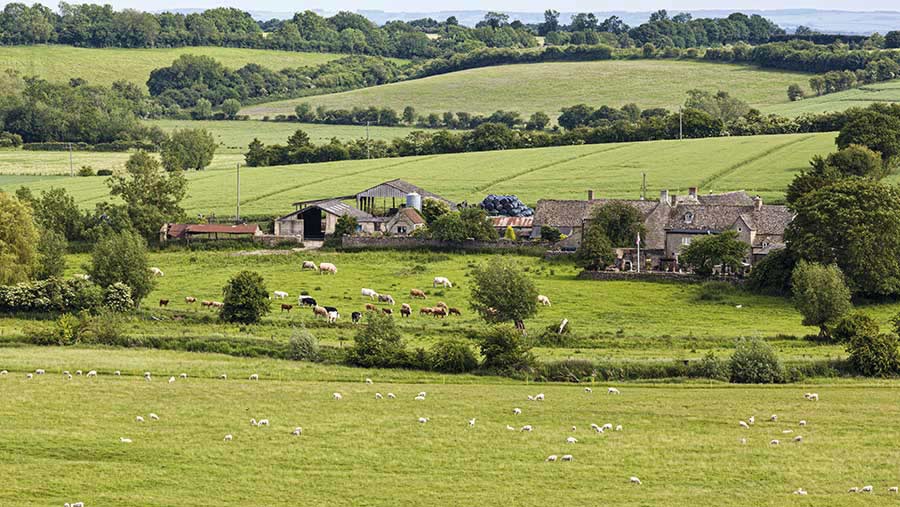Advice on 2023 BPS claims as delinked payments near
 © Cotswolds Photo Library Creative/Alamy Stock Photo
© Cotswolds Photo Library Creative/Alamy Stock Photo Basic Payment Scheme claimants in England need to check their entitlements well ahead of the application period for 2023 claims.
This year’s claim marks a pivotal point, with delinked payments starting in 2024 as England continues to move away from the EU’s CAP support model.
See also: Lump sum exit claims – tax timing and paperwork tips
From 2024, Basic Payment Scheme (BPS) funding will no longer require land against which to set a claim, hence the term delinking.
It means that a claimant can stop farming altogether but still receive a delinked payment. The 2023 claim is the last in which BPS entitlements can be activated for payment.
In order to access delinked payments from 2024 onwards – in addition to having a BPS reference amount value – an eligible claim for BPS must be made in 2023, says NFU senior support scheme adviser Richard Wordsworth.
Support policy changes have added to concerns and confusion over BPS applications, he says, advising claimants to get ahead so that any queries can be answered before they become time critical.
How delinked payments are calculated
Delinked payments will be calculated based on an average of Basic Payment Scheme (BPS) receipts in 2020, 2021 and 2022. This average will set a reference amount, which will then be multiplied by the annual % reductions in BPS to arrive at the payments for 2024, 2025, 2026 and 2027.
Check entitlements
The first step is to review what entitlements are held, including any that are on a lease. This can be done by logging into rural payments online.
The personal details held by the Rural Payments Agency (RPA) can then be checked.
“Updating details ensures agency officials can make contact over any queries on the application without delaying the process,” he adds.
On the business overview page there is a link to “view entitlements”.
Entitlements that have been used or are unused each year are shown here, and it is possible to search every year back to 2015.
You can also see whether any have been leased or lost to the national reserve.
Leased entitlements
It is particularly important to check for leased entitlements, advises Mr Wordsworth, as these automatically bounce back to the lessor at the end of the lease period.
The RPA will not notify farmers and growers to inform them that the entitlements have been returned.
This has caused confusion in the past, particularly if farm administration staff have changed and are not aware of the potential to miss out on a payment associated with an entitlement.
“We have seen a number of damaging cases where farmers have not realised the leased entitlement has been automatically returned to the lessor until after it is too late,” Mr Wordsworth says.
Lessors who want to extend leases, or perhaps want to end leases early, should notify the RPA as soon as possible by letter or email and to keep all parties informed of what is happening.
Lessees only have the power to terminate leases early, which can also be done by notifying RPA by letter or email.
It is advisable to hold discussions urgently with the lessor to firm up what their intentions are and make sure the entitlement is in the right place, advises Mr Wordsworth.
For those who need to move entitlements in 2023, online transfers are expected to open at the end of January 2023, as in recent years.
The RPA will announce this on its website.
Tenancy agreements
Tenants should carefully examine tenancy agreements for any reference to entitlements, says George Dunn, Tenant Farmers Association chief executive.
“Some will have terms which require the benefit of any entitlements to revert to the landlord,” he says.
People need to go back to their agreements to look for any clause relating to entitlements and understand how it operates in their circumstances.
“If necessary, take advice well before delinked payments take effect,” advises Mr Dunn.
There are many forms of clauses relating to entitlements. Some of these are not easily understood or are poorly drafted.
Farm business tenancies and some newer Agricultural Holdings Act agreements where there has been a succession are the types of agreement most likely to include clauses referring to entitlements.
